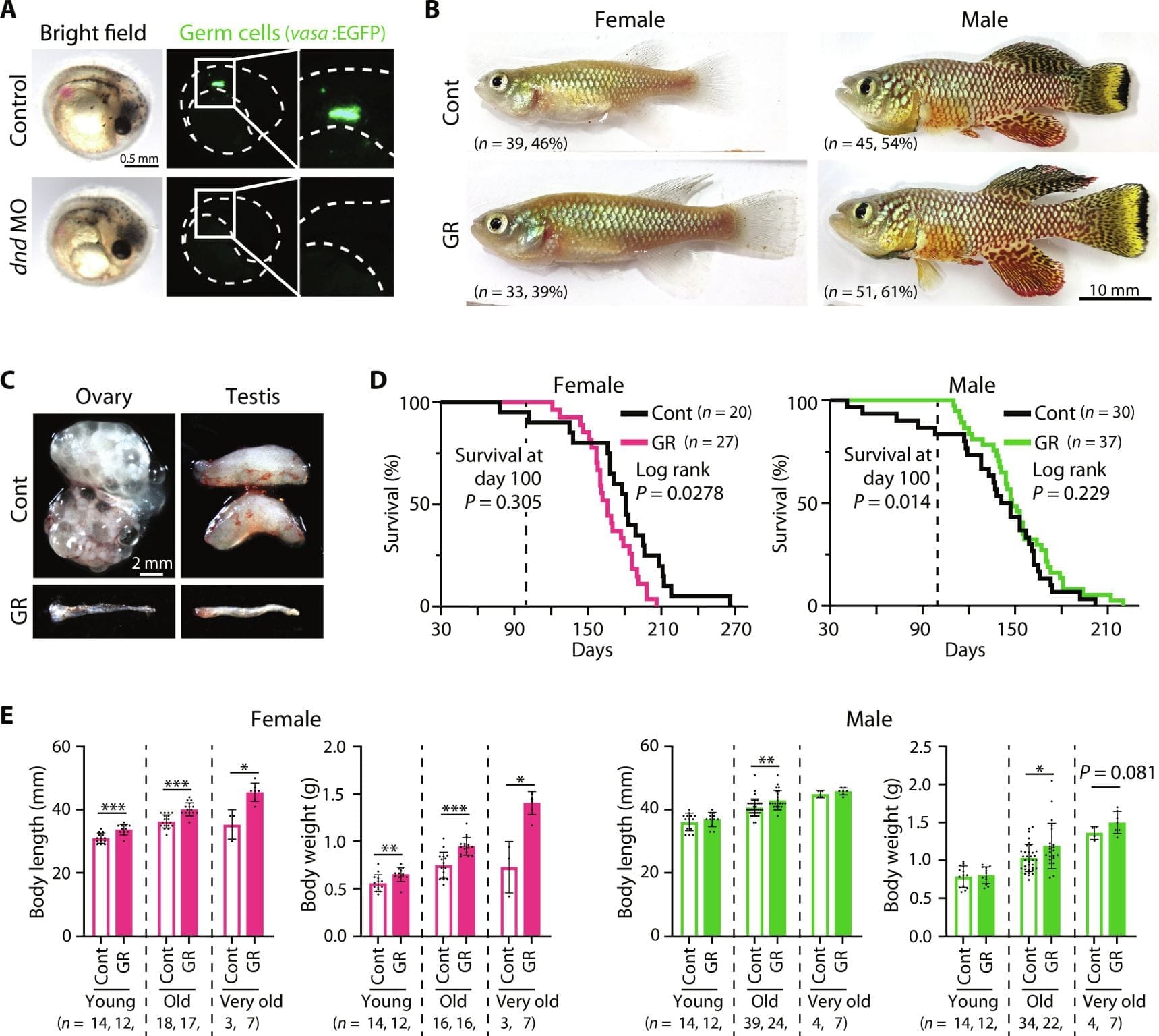Why do women live longer than men? Sperm production is expensive
Are you a guy? Do you want to live longer? It might be time to ditch your sperm.

Females live longer than males.
It’s like a universal rule of the animal kingdom.
In humans, females outlast their male counterparts by about 5 years with women living until ~80 and men only reaching 75.
That’s about a 7% difference in life expectancy!
What explains this difference?
A number of factors have been hypothesized, such as males take more risks, are more prone to suicide, and women tend to lead much healthier lifestyles.
But that's just in humans!
This sex difference in life expectancy extends to many other animals.
And it’s thought that at least some of these life expectancy differences are a trade-off between an organism’s own needs and the constant production of sex cells known as gametes.
Studying these compromises among growth, development and reproduction throughout the life of an organism, or their Life History, can help explain the differences we see in animal size, age of maturation and their life expectancy.
But it has been hypothesized that the creation and maintenance of gametes is very expensive and experiments in non-vertebrates (fruit flies and worms) have confirmed that the molecular removal of sex cells can extend an organism’s life.
Similar work has not been done in vertebrates; however, an analysis of Korean eunuchs (males who have been castrated) from the 1800’s found that men who no longer had testicles lived between 14-19 years longer than the general population.
Castration seems a bit extreme, and there are other confounding factors that could account for the increased lifespan of these eunuchs, for example, they were very well taken care of as members of the royal staff.
And, at least in worms, complete removal of the gonads has no effect on their life expectancy.
So to settle this line of questioning once and for all (not really, because this was done in fish), the researchers behind today’s paper knocked out the gene responsible for creating gametes in both male and female Killifish.
What they found can be seen in the figure above a) Confirmation of gamete removal. b) No effect on gender coloration. c) The gonads are MUCH smaller. d) Life expectancy of females decreased, males increased. e) Quantification of the physical size differences
The researchers went on to show that the differences between the sexes post-gamete removal appear to be mostly dependent on endocrine signaling and metabolism.
But the reduction of female life expectancy was unexpected and the researchers attribute this to a significant reduction in estrogen production.
This work is important because it could provide new strategies for combating aging (in men), and offer new pathways for us to target to improve human health and longevity.

